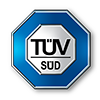Chapter I: General requirements
1. Devices shall achieve the performance intended by their manufacturer and shall be designed and manufactured in such a way that, during normal conditions of use, they are suitable for their intended purpose. They shall be safe and effective and shall not compromise the clinical condition or the safety of patients, or the safety and health of users or, where applicable, other persons, provided that any risks which may be associated with their use constitute acceptable risks when weighed against the benefits to the patient and are compatible with a high level of protection of health and safety, taking into account the generally acknowledged state of the art.
2. The requirement in this Annex to reduce risks as far as possible means the reduction of risks as far as possible without adversely affecting the benefit-risk ratio.
3. Manufacturers shall establish, implement, document and maintain a risk management system. Risk management shall be understood as a continuous iterative process throughout the entire lifecycle of a device, requiring regular systematic updating. In carrying out risk management manufacturers shall:
(a) establish and document a risk management plan for each device;
(b) identify and analyse the known and foreseeable hazards associated with each device;
(c) estimate and evaluate the risks associated with, and occurring during, the intended use and during reasonably foreseeable misuse;
(d) eliminate or control the risks referred to in point (c) in accordance with the requirements of Section 4;
(e) evaluate the impact of information from the production phase and, in particular, from the post-market surveillance system, on hazards and the frequency of occurrence thereof, on estimates of their associated risks, as well as on the overall risk, benefit-risk ratio and risk acceptability; and
(f) based on the evaluation of the impact of the information referred to in point (e), if necessary amend control measures in line with the requirements of Section 4.
4. Risk control measures adopted by manufacturers for the design and manufacture of the devices shall conform to safety principles, taking account of the generally acknowledged state of the art. To reduce risks, Manufacturers shall manage risks so that the residual risk associated with each hazard as well as the overall residual risk is judged acceptable. In selecting the most appropriate solutions, manufacturers shall, in the following order of priority:
(a) eliminate or reduce risks as far as possible through safe design and manufacture;
(b) where appropriate, take adequate protection measures, including alarms if necessary, in relation to risks that cannot be eliminated; and
(c) provide information for safety (warnings/precautions/contra-indications) and, where appropriate, training to users. Manufacturers shall inform users of any residual risks.
5. In eliminating or reducing risks related to use error, the manufacturer shall:
(a) reduce as far as possible the risks related to the ergonomic features of the device and the environment in which the device is intended to be used (design for patient safety), and
(b) give consideration to the technical knowledge, experience, education, training and use environment, where applicable, and the medical and physical conditions of intended users (design for lay, professional, disabled or other users).
6. The characteristics and performance of a device shall not be adversely affected to such a degree that the health or safety of the patient or the user and, where applicable, of other persons are compromised during the lifetime of the device, as indicated by the manufacturer, when the device is subjected to the stresses which can occur during normal conditions of use and has been properly maintained in accordance with the manufacturer's instructions.
7. Devices shall be designed, manufactured and packaged in such a way that their characteristics and performance during their intended use are not adversely affected during transport and storage, for example, through fluctuations of temperature and humidity, taking account of the instructions and information provided by the manufacturer.
8. All known and foreseeable risks, and any undesirable side-effects, shall be minimised and be acceptable when weighed against the evaluated benefits to the patient and/or user arising from the achieved performance of the device during normal conditions of use.
9. For the devices referred to in Annex XVI, the general safety requirements set out in Sections 1 and 8 shall be understood to mean that the device, when used under the conditions and for the purposes intended, does not present a risk at all or presents a risk that is no more than the maximum acceptable risk related to the product's use which is consistent with a high level of protection for the safety and health of persons.
